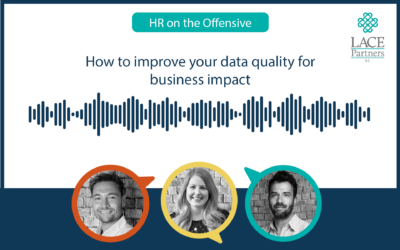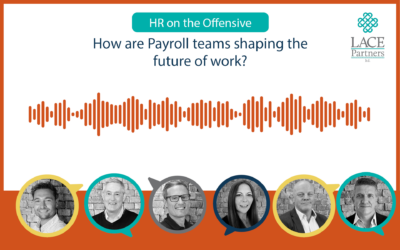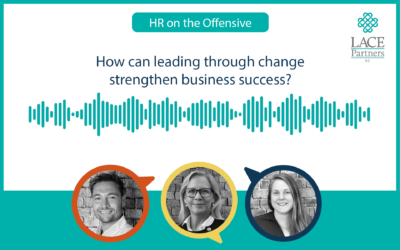In this week’s blog LACE Senior Manager Luka Winterborne and MD Cathy Acratopulo respond to one of the hottest topics in HR at the moment: ‘The Great Resignation’. Read on to learn what questions every HR Director should be asking themselves and why your employee value proposition has never been more important.
HR leaders reading these alarming headlines must act now. The time for light touch culture reviews, annual employee engagement surveys and tinkering around the edges of your employer brand has passed. HR leaders who ignore the need to fundamentally reset their employee value proposition will do so to the detriment of their company’s performance and their personal success.
Colleagues are acting with their feet like never before. The risk of losing the talent you have now and failing to attract what you need for the future, is real.
As bleak as that sounds, the need for a reset presents an enormous opportunity for businesses willing to focus their time and effort on pivoting their proposition to reflect the changing values of their workforce. But how are these values changing and what do employers need to do differently?
First, we need to appreciate the full cultural impact of the pandemic and how it has changed our attitudes, values and ambitions outside of the workplace. The need to feel safe, supported, cared for has become a primary motivation. People are focused on staying healthy, both physically and mentally. This re-ordering of values has changed employee expectations of work and their employers.
Employees are re-evaluating the businesses they work with through a more holistic, human lens that blurs the boundary between work and life. They want to feel cared for and respected more than ever before and are evaluating whether their current employer delivers on this requirement. Disappointment with their employers’ responses to social movements such as Black Lives Matter has also contributed to the perfect storm.
Maintaining a continued degree of flexibility in work patterns is an obvious factor in addressing the need for a more human approach. A recent study by FlexJobs in North America reported that 58% of participants agreed they would “absolutely” look for a new job if they couldn’t continue remote work in their current role. In reality, the consensus seems to show that a hybrid outcome is most likely. Closer to home, research conducted by the CIPD and YouGov indicates that the majority of employees in the UK would prefer to work from home at least some of the time.
In summary, many of the drivers for employees leaving relate to a perceived lack of humanity at work, typically if managers and leaders do not provide the understanding, empathy, flexibility and recognition colleagues are looking for. Businesses that have realised this early on and adapted their proposition have retained talent whilst those behind the curve are seeing higher rates of attrition and emerging skills gaps. As an HR leader, your offerings on wellbeing, flexible working, diversity and inclusion, social responsibility, culture and leadership are now major decision-making criteria for the workforce and candidates.
So, what should we do in HR? An urgent, proactive response is required.
Every HR leader needs to ask some fundamental questions:
- How am I checking what employees really want and how has this changed since the pandemic? Am I listening to the workforce frequently enough?
- Are we explicit about the ‘deal’ for our employees i.e., the employee value proposition?
- What needs to change?
- How can I use colleague feedback to create or evolve our EVP and employee experience to make our business a place where people want to join and stay?
- What are our competitors doing? How do we stay ahead in the market in terms of what we offer our people?
- What are the policy or people management changes I need to make to deliver on our updated EVP?
- How can I communicate the changes to our EVP and ways of working to all our employees and candidates, so they understand how we are responding?
- Am I supporting our people managers enough with training and capability building, to deliver on the new proposition and excel in a post-pandemic work environment?
The power of the colleague voice has become instrumental in creating a work culture reflective of the wants, needs and motivations of the workforce. The simple art of listening and responding can pinpoint what employees really want and give structure to evolving the employee experience. Now is the time to listen, understand and reset your proposition for the workforce to reflect their changing values and expectations.
To find out more about how LACE Partners can help you answer these fundamental questions, reach out to Cathy Acratopulo or Luka Winterborne.






